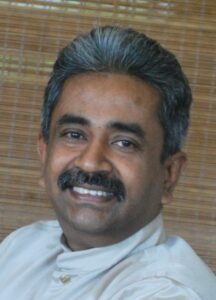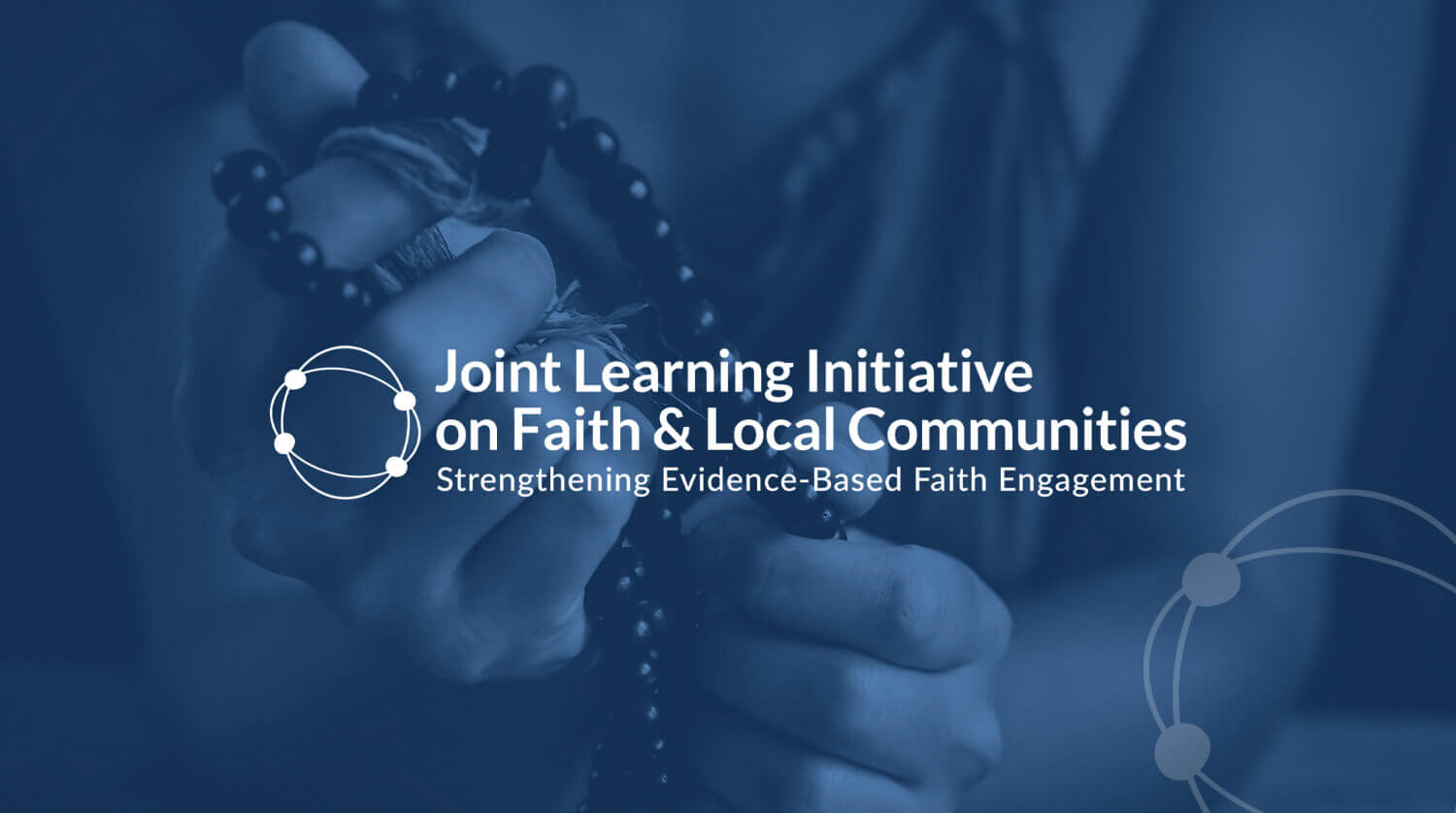Sarvodaya Shramadana Movement in Sri Lanka has over 400 staff, but as a whole it accomplishes its work with the help of over 1200 staff and 100,000 volunteers. It was founded 59 years ago. The term Sarvodaya means the awakening of all. The movement is inspired by Buddhist principles and works across five countries and reaches 15 thousand of 38,000 villages in Sri Lanka. Dr. Vinya S. Ariyaratne, who has been involved in the senior positions of the organisation since 2000, and is now the General Secretary of the Movement. Dr. Vinya shares the trajectory, faith aspects, successes and challenges of the Movement in an interview with JLI’s Postdoc Intern, Tedla Desta. Tedla completed his PhD in Trinity College Dublin (TCD) in 2016 researching the nexus between peace and conflict and the mass media.
Sarvodaya Mission: the fulfilment of the basic needs of people in a holistic way bringing spiritual, moral and cultural dimensions integrated with social, economic and political development in community.
 An excerpt of the interview follows.
An excerpt of the interview follows.
As we start this interview, I want to thank you for your involvement in JLI. Can you please briefly introduce yourself and your organisation’s mission?
Dr.Vinya: I am a Medical Doctor specialized in Public Health. I am married with two children. I grew up in the Sarvodaya Shramadana Movement because my father was the founder of the Movement but I started working full time only in 2000. Prior to that I practiced as a doctor while teaching public health academically. In 2000, I became the Executive Director and since 2011, I have served as the General Secretary, in a corporate governance position, as we have 12 subsidiary organisations.
Sarvodaya means the awakening of all, actually coined by Mahatma Ghandi to denote the uplifting of people but we gave it meaning. Shramadana means sharing of labour. At the inception of the movement in the late 1950s, it was inspired by Ghandian and Buddhist thinking to support people to satisfy their own needs by their own efforts and through sharing their own resources, including labour, thoughts and energy. Though it has a distinct development philosophy it is a very inclusive secular organisation, which works across all ethnic and religious communities in Sri Lanka. Today it is the largest grassroots development movement in terms of its outreach with a presence in about 15 thousand villages out of the 38 thousand villages in Sri Lanka. It is a bottom up process, where we encourage maximum participation and ownership of communities through sharing of their resources. We also are supported by external assistance, forming community level institutions, and giving them legal status to run their own affairs and evolve a network in the country to be able to deliver some structural issues related to poverty and powerlessness and try to promote peace and harmony.
We are involved in peace and conflict projects, refugees and migration but we focus on internal migration or displacement. That phase is somewhat over now because we do not have many IDPs in Sri Lanka right now. Sexual and Gender-based violence is a continuing initiative. We have been running homes for sexually abused girls, and this is a very big problem in Sri Lanka.
What is distinctive about your organization especially in terms of its faith focus? Dr.Vinya: I think the most important thing is that Sri Lanka is a country where seventy percent of the population is Buddhist but we also have Hindu, Christian and Muslim communities. We are a multi-ethnic and multi-religious society and we have been able to articulate a philosophy based on Buddhism but also able to mobilise the non-Buddhist communities because of common spirituality in all religions. We have been accepted by all communities in the country. Sri Lanka has few organisations that work throughout the country in all communities especially during the civil war. All of this contributes to why we are able to serve a large underprivileged community. That is the uniqueness; translating Buddhist teachings into sophisticated but practical development activities around the country. Can you give us examples from your organization's experience of how faith based delivery is working? Dr.Vinya: Actually, I have a problem with this question itself because we do not like being characterized as a delivery organisation. Our core philosophy is based on sharing. When something is carried out in a community, all are participant beneficiaries. If we are delivering and somebody is receiving, that int turn creates dependency. That is contradictory to our own philosophy. We get everybody to share equally and contribute when there is a need. This is somewhat a different way, we do not mobilise resources and deliver. We are the largest humanitarian organisation in Sri Lanka, so when there is calamity, we have a delivery system and of course, we get a lot of donations. We go beyond traditional giving and institutionalise the way people feel about giving. We try to promote that unselfish giving,a true Buddhist vision and a spiritual transformation that we expect in everybody who participates in giving. And it has succeeded very well. Even though we get external funding and technical support, seventy percent of the resources we mobilise locally is through that notion. We have been very successful in institutionalising the faith dimension of Buddhist thinking in a very dignified way. Now based on the sharing understanding, how does faith based sharing make a difference or add value? Dr.Vinya: It does make a difference because on one hand it is encouraging for your individual spiritual liberation and advancement but at the same time has systematically provided a way to shape how we operate. We were involved in piloting the SPHERE standards, the standard for humanitarian delivery. We provide relief distribution or a recovery process in a very systematic way. We help during displacement after conflict and resettlement. Sometimes some groups only want to assist a particular community belonging to a particular religion, but we do not. We have systems in place to ensure any assistance is done fairly. Therefore, that is how we bring in the faith perspective into a more organised and rational delivery system. Do you collaborate with other faith groups? Cross sector with public/private organisations and other secular organizations? Dr.Vinya: Yes very much so and at different levels. Now at our village level you usually get mono-religious, mono-ethnic groups but in certain geographic areas you get mixed communities, so we always make sure that the Buddhist Temple, the Muslim Imam, the Christian community that they have regular understanding and in all the activities, they participate. Even in a Buddhist village, we encourage very much the non-Buddhist communities, the clergies, and the priests to participate. In all our activities, we get them to pray, not just symbolically but also to give the communities an understanding of the values and traditions of other religions particularly for children. At a basic level, having that inclusive notion of religion is important. Sri Lanka is a majority Buddhist country affected by ethnic conflict. Religion has played a big role because the nationalists mobilise many people (especially Buddhists). Because of this we tried on a national level to bring faith leaders in conflict transformation and peacebuilding including interfaith dialogues. We also prepared manuals for intra and inter-faith dialogues and trained lay leaders and priests from all religions on peacebulding and reconciliation. Lastly, we had violent incidents occasionally between different religious groups. Even with small incidents, we trained these communities to have and use an early warning system. We have lead religious leaders to meet and successfully encouraged people not to resort to violence. The last few years we have seen some very serious incidents not prevailing in other areas because these trained faith leaders intervened in advance before it got out of hand. For example on child protection, we have a platform where we bring different religious groups. We are equal partners in mobilising and advocating for child protection especially sexual abuse. Right now, we are working with UNICEF and few other organisations on the prevention of sexual exploitation of children. Therefore, the collaboration depends on the type of issue we are addressing and of course, we are only collaborating with organisations, which adhere only to principles of non-violence and non-confrontation. We do not do street demonstrations; we have a different approach. With these organisations including private organisations, we collaborate through alliances. What were your biggest successes and challenges? Dr.Vinya: Our biggest success will be celebrating sixty years as a social development organisation and a peoples’ movement next year. By surviving and continuing to be relevant we have become the largest Sri Lankan humanitarian organisation with a grassroots network, which can mobilise at anytime even in an emergency or otherwise. For example, we are going through a reconciliation process right now as country is in a political transition. There is a constitutional reforms process going on at the national government level but hardly anything is happening at the grassroots level. We are educating the people like in South Africa after the Apartheid: what kind of constitution do we need? Sarvodaya at community level is leading trainings: on basics of the constitution, the model and so on. Therefore, our success has been surviving and flourishing as a movement, especially as a people’s movement and being a service organisation catering to a large number of communities in the country. We lead the thinking at the grassroots level about development and now with the sustainable development goals, and we educate people on those and try to make every community SDG compliant. The challenges, I think we have now built an infrastructure of full-time staff, training centres, like officers and village organisations so you still need resources to sustain these. Even though, largely we mobilise volunteers and have about 1200 staff, we are not getting financial support like we used to get 20 years ago. Sri Lanka is now considered a middle income country and therefore official development assistance is almost zero. The current funding comes through bilateral agencies like USAID and a few other European donors for specific areas like human trafficking, human rights and reconciliation rather than for development even though we have vast disparities. Poverty levels are high in some communities; there are pockets of poverty and instability in terms of ethnic harmony. There is a lot to be done and resource are constrained. We had nearly 10 years of suppression of civil society due to the political atmosphere. Though we still survive, it has been difficult for civil society organisations to operate because the government which was in power until 2015 was anti-civil society, anti-NGO, so we were not getting enough space. There were restrictions, harassment and even violence against some of the civil society leaders. That situation changed but we are still finding a lot of administrative and legislative hurdles for organisations to operate.






